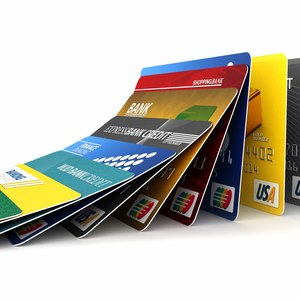
If your high credit card debt swells to the point that it erodes your ability to meet your obligations, credit card buyouts are a potential solution. A credit card buyout serves to clear your debt either with a loan or through a deal with the credit card company or debt collector. You should be aware that credit card buyouts can affect your taxes and credit score.
Buyout Approaches
Credit card buyouts usually take one of two forms: negotiated settlements and debt consolidation loans. A negotiated settlement entails striking a deal with the credit card company to pay off a portion of the debt, either in a lump sum or in payments your finances can tolerate. As a rule, credit card companies do not usually consider any form of settlement until the account becomes severely delinquent. Debt consolidation loans require you to offer collateral, such as property, in exchange for a loan that clears your debts. The benefit of this approach is that it typically reduces the total interest you pay. If you fail to make your loan payments, however, it often means the loss of the collateral.
Credit Scores and Taxes
Debt settlements for any amount less than the total you owe serve as negative marks on your credit report and lower your credit score, sometimes for years to come. And according to the Federal Trade Commission, "any savings you get from debt relief can be considered income and taxable."
References
- ABC News: Negotiating Away Credit Card Debt
- FTC: Coping with Debt
- Time: Start Haggling
- Bankrate: What Are the Effects of Card Debt Settlement?
- Federal Reserve. "Consumer Credit - G.19 Consumer Credit Outstanding (Levels)." Accessed Sept. 25, 2020.
- Federal Reserve Bank of New York. "Center for Microeconomic Data." Page 3. Accessed Sept. 28, 2020.
- Experian. "A Look at U.S. Consumer Credit Card Debt." Sept. 28, 2020.
- Federal Reserve. "Consumer Credit - G.19." Accessed Sept. 25, 2020.
- Consumer Financial Protection Bureau. "Data Point: Credit Card Revolvers." Accessed Sept. 28, 2020.
- Charles Schwab & Co. "Good Debt vs. Bad Debt." Accessed Sept. 28, 2020.

